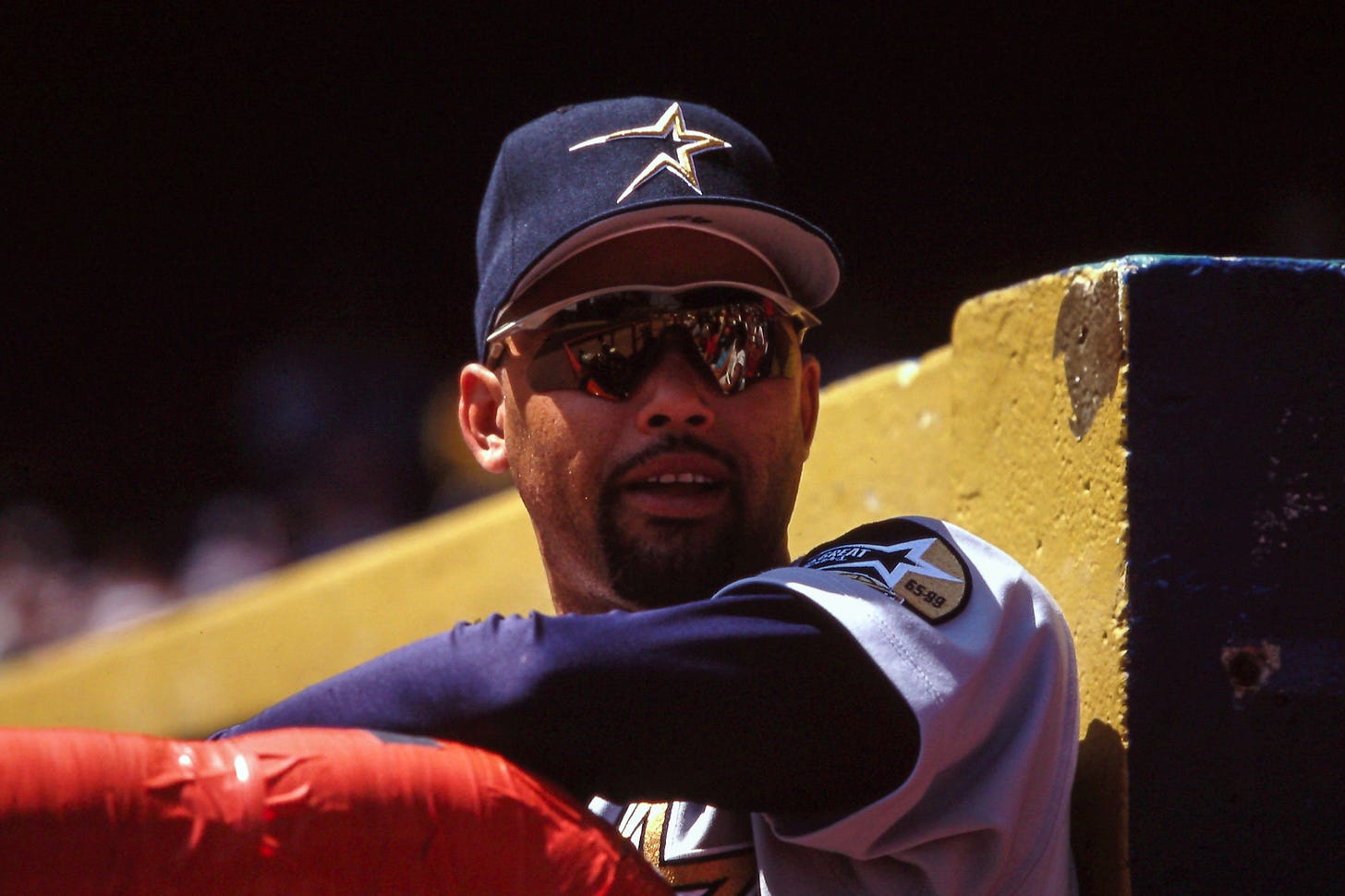'Lima Time' is forever
Jose Lima was so much fun, and he was never better than in 1999.
“LIMA TIME!”
That’s how Dominican-born pitcher Jose Lima would identify his starts and anything else he was doing.
“Lima Time” was a full-tilt, high-energy occasion full of dancing, singing, celebrations and strikeouts.
Lima was the life of every room he was in. He was a hell of a pitcher, too.
Lima signed with the Tigers in 1989 and reached the majors in 1994. Detroit at the time was putrid and Lima wasn’t much better in his first few years, compiling an ERA that needed extra columns on his Topps cards.
But there were glimpses of the pitcher he would become. Like a week into the start of the 1994 strike, when he twirled a no-hitter while pitching for the Toledo Mud Hens.
He spent 20 minutes signing autographs for fans after the game.
“If someone asks Jose Lima to sign, I can’t say no,” he told the Detroit Free Press. “These people might be watching me in the majors someday, and I want them to remember that Jose Lima is a nice guy.”
He toiled with the Tigers for a few seasons before it was on to Houston for the 1997 season, traded to the Astros with Brad Ausmus and a bunch of other guys.
Houston was where “Lima Time” really came alive.
It helped having a manager, Larry Dierker, who understood pitching. And a pitching coach like Vern Ruhle to help him develop pitches like a slider to compliment his fastball and filthy changeup. And to pitch in a cavernous stadium like the Astrodome. And to have a closer like Billy Wagner to shut the door.
In spring training before the start of the 1999 season, Lima predicted he’d win 20 games. It wasn’t outside the realm of possibility—he won 16 the season prior—but who really believed him?
Lima always talked a big game about himself, and sometimes it was difficult to take “Lima Time” seriously, and to separate “Lima Time” from Lima.
But he was being serious about his prediction. And he was accurate, too.
Next thing you knew, “Lima Time” had rattled off eight straight wins. And been selected to the All-Star game.
He kept winning deep into the summer.
The 20th win came Sept. 11 against the Cubs. After the final out, Lima danced and pumped his fist, pointing skyward and hopping. He snagged the game ball and gripped it for dear life.
He later gave the ball to radio host Jim Rome. To honor an obligation. A promise.
Not everyone loved “Lima Time,” especially opposing players who felt like Lima was showing them up. But that was simply who he was.
"Baseball is a short career, and I'm going to enjoy every single day. Everybody should,” he told Kosta Kennedy for Sports Illustrated. “If you don't like what I do, take me deep. You can dance around at every base if you want, I don't mind. I'm not going to stop being who I am."
The beat to “Lima Time” shifted in 2000—he went 7-16, and the following year Houston dealt him back to Detroit, back to the frustrations, and he found himself released and facing a future without baseball.
But “Lima Time” wasn’t done. He took an assignment with Newark of the independent Atlantic League, and stayed humble (enough) and pitched well (enough) to find himself back with an invite to spring training with the Dodgers.
He turned that invite into a season in Los Angeles that culminated with a complete game shutout in the NLDS against the eventual league champion Cardinals.
From there, Lima became a baseball nomad. Kansas City. The Mets. Aguilas of the Dominican Winter League. Mexico. Korea. The Camden Riversharks. The independent Golden Baseball League.
While in California in May 2010, Lima suffered from a cardiac episode and died at the age of 37. The shocking loss hurt that much more because of how alive Lima always was.
“It always was Lima Time,” Rome said after Lima’s untimely death. “Whether he was on the bump, or walked into a room, or picked up a phone, or got in front of the camera, or a mic, it was Lima Time. Always. This guy rolled out of bed in the morning, it was Lima Time.”



Such a present guy. Loved him